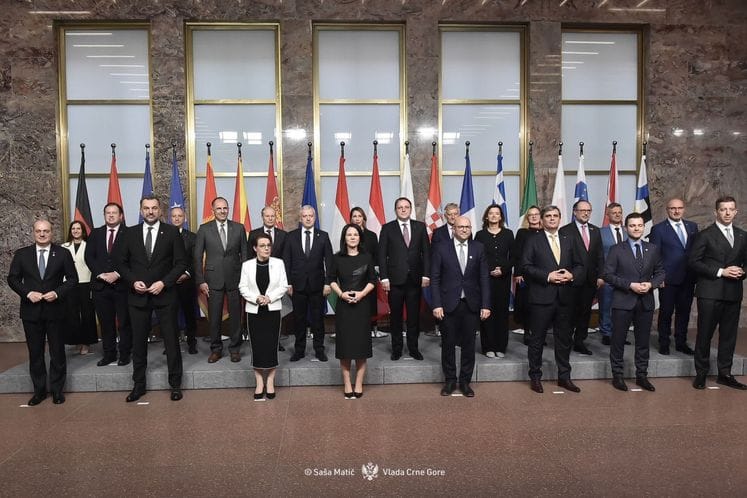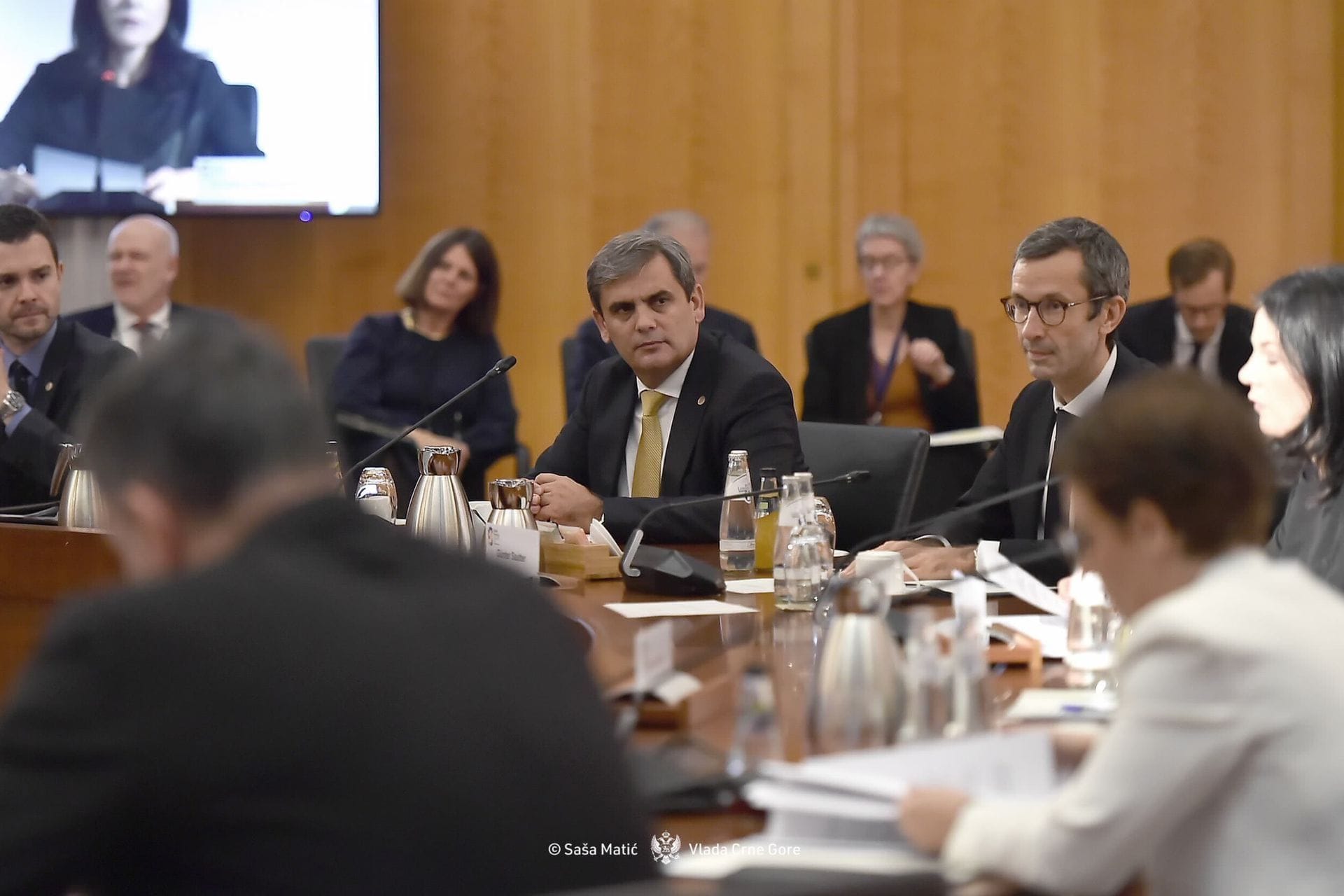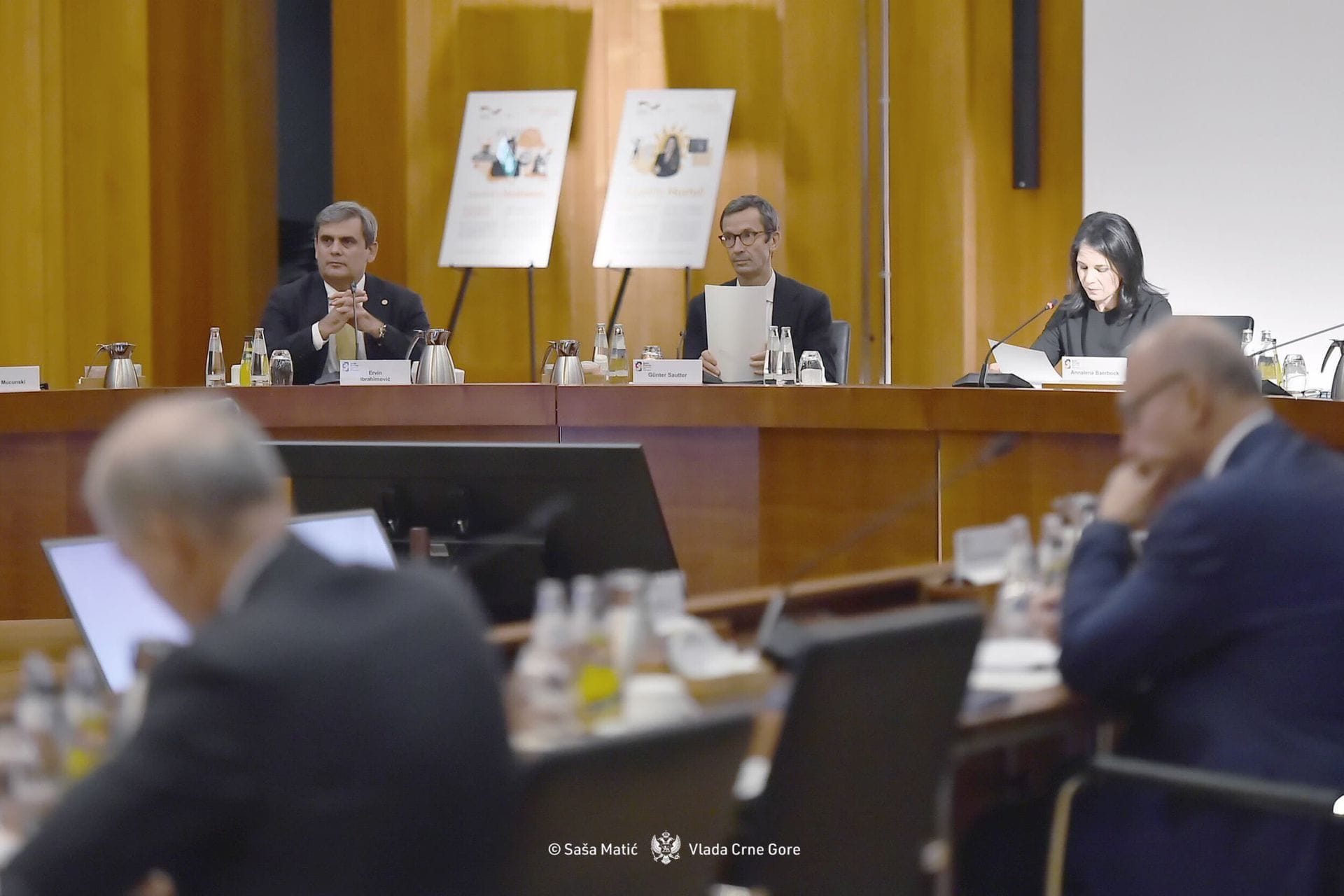- Government of Montenegro
Ibrahimović in Berlin: Berlin Process most effecti...
Ibrahimović in Berlin: Berlin Process most effective mechanism for faster Western Balkans integration into the EU

Deputy Prime Minister and Minister of Foreign Affairs Ervin Ibrahimović participated today in the Berlin Process Meeting of the Ministers of Foreign Affairs, marking the 10th anniversary of this initiative.
At the opening, speeches were delivered by Germany's Foreign Minister Annalena Baerbock, Hungary's Foreign Minister and President of the EU Council, Péter Szijjártó, and outgoing European Commissioner for Enlargement, Olivér Várhelyi. The ministerial panel included foreign ministers from the Western Balkans as well as Austria's Alexander Schallenberg, Bulgaria's Ivan Kondov, Croatia's Gordan Grlić Radman, Greece's George Gerapetritis, Poland's Radosław Sikorski, Slovenia's Tanja Fajon, and UK Minister of State for Europe, North America and Overseas Territories in the Foreign, Commonwealth & Development Office, Stephen Doughty.
Speakers reiterated strong support for the continued integration of the Western Balkans into the European Union, emphasising the need to accelerate the negotiation process and implement necessary reforms.

Minister Ibrahimović emphasised that the Berlin Process remains the most effective mechanism for comprehensive preparation for EU membership. Montenegro marks the 10th anniversary of the Berlin Process as a leader in negotiations and the first country to receive a positive IBAR. I believe that today we are laying the groundwork for the successful realization of our shared goal—a larger Europe, he added.
The Minister highlighted that Western Balkan countries have already received an excellent support mechanism this year through the new Growth Plan. Montenegro intends to fully leverage this opportunity, as well as other available instruments, to speed up the integration process and reduce the development gap with the EU, Ibrahimović said.
He reminded that many of the tools aimed at speeding up European integration were conceived and implemented within the framework of the Berlin Process and expressed gratitude for the long-standing support provided by Germany and other EU member states for the Europeanization of the Western Balkans.

Reflecting on the challenges faced by Western Balkan countries, Ibrahimović stressed that addressing these requires not only national efforts but also a coordinated regional approach, along with substantial reforms in the areas of rule of law and strengthening democratic capacities.
In this context, he also pointed to the importance of enhancing capacities to collectively address growing security challenges, particularly focusing on cyber threats. This is why we believe that the Western Balkans Cyber Capacity Centre (WB3C), established at the initiative of France, Slovenia, and Montenegro, with its headquarters in Podgorica, represents an excellent starting point for intensifying cooperation and regional resilience to cyber threats within the Berlin Process, said the Minister.
He further noted that for Montenegro, receiving a positive Report on the fulfillment of interim benchmarks for the rule of law was a recognition of the country's achievements. The positive IBAR is also an incentive to double our efforts as we enter the final and most challenging phase of negotiations, aiming to become the 28th EU member by 2028, the Minister concluded.
At today’s meeting in Berlin, a declaration was adopted to strengthen cooperation ahead of the Berlin Process Summit.
